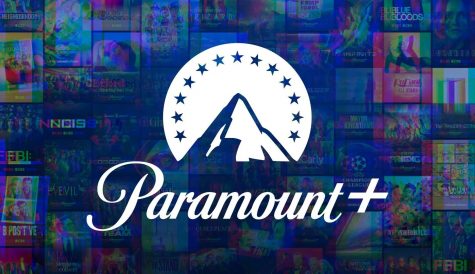
After more than 40 years of operation, DTVE is closing its doors and our website will no longer be updated daily. Thank you for all of your support.
Google can add value to cable, says Brittin
Google can provide benefits to consumers and cable operators by enabling the former to navigate and search for content and allow the latter to innovate in packaging and delivering it, without conflict between the internet giant and distributors, according to Matt Brittin, president, EMEA business and operations, Google Europe.
Taking part in the opening panel session at Cable Congress today, Brittin said connectivity to the internet is bringing disruption but this is being driven by the consumer. He said Google was trying to make it easier for people to make the most of the web and that Google is a “partner, not a predator”. He said the latest release of Android to power TV is designed to take the friction out of the user experience. He said that there is an opportunity for cable to bring content apps including games to the TV. “There is an explosion of content from lots of different types of creators,” he said.
Google said Android is an ecosystem of apps rather than the integration of an operating system with devices, like iOS. He said Android TV was simply one way to navigate TV. “It doesn’t mean [for cable] ceding control. [Cable] can use our platform and innovate on top of it,” he said.
Brittin said that Google Fiber in the US is about helping drive innovation on the broadband side. “In Europe we need to see the investments that bring about the highest speeds for consumers,” he said.
Speaking on the same panel, Lutz Schuler, CEO, Unitymedia KabelBW, said that people were consuming more video, meaning that the key was to enable consumers to find what they are looking for in a simple way. He said YouTube is already on Liberty Global’s Horizon platform and this helped drive consumer engagement.
However, said Schuler, cable is in competition with Google in terms of the user experience. “We have our platform that must be as good as Android but we also have local content relationships.”
Schuler said OTT services were simply forms of premium content. “We already collaborate with [German VoD service] Maxdome and we are thinking about getting Netflix on our platform,” he said. “I wouldn’t see Netflix as a disruptor. They’re only a disruptor if we handle them wrong.”
Willfried Urner, chairman, SES Platform Services, said consumers are moving to consume content in different ways, meaning that traditional distributors have to team up with internet providers. “There is a lot of room for partnerships with companies like Google,” he said. Urner said that the next big trend would be for mobility.
Giorgio Stock, president, EMEA, Turner Broadcasting, said that “there would be more collaboration” between content providers and platforms in the future. He said consumers now expected content to be delivered on new devices and content providers to create new delivery platforms.
Manuel Cubero, CEO, Kabel Deutschland Holding and MD, Vodafone Deutschland, said that traditional TV from cable is under pressure, even as the proliferation of content online helps drive demand for broadband.
Cubero said operators could not discriminate against services but that space to innovate ahead of ‘internet 4.0’, meaning the Internet of Things and the proliferation of machine-to-machine connectivity, must be preserved.
Cubero said that cable had the option to be a ‘dumb pipe’, but that most operators wanted to manage customer data like Google. He said cable would try to gain its fair share of the smart application market.



